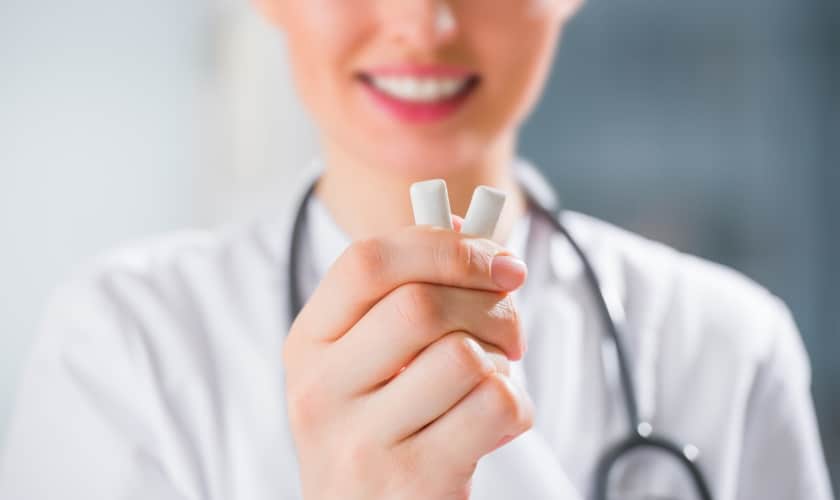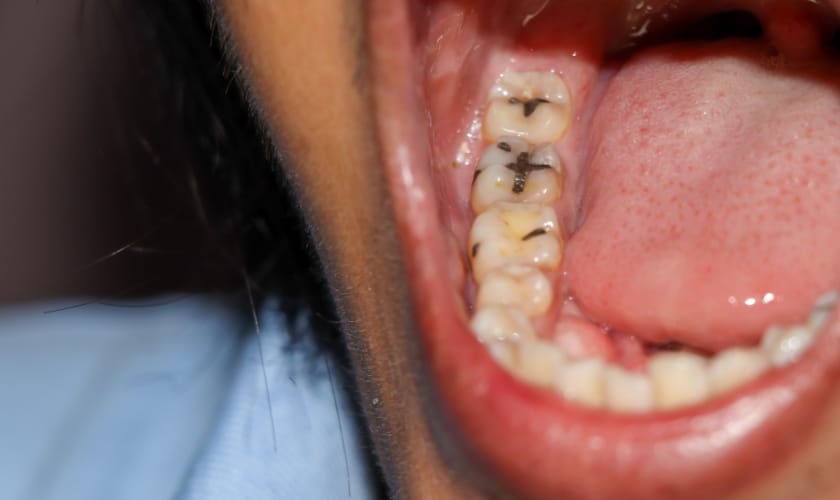What Happens to Your Teeth When You Drink Cold Water? Rancho Cucamonga, CA

Savoring a chilled glass of water on a sweltering day is a refreshing treat for many. However, have you ever wondered about the impact cold water has on your teeth? While it may seem harmless, the effects on your dental health are more nuanced than you might think. In this guide, we’ll explore the science behind tooth sensitivity caused by cold water, delve into contributing factors, and offer practical tips to maintain healthy teeth and manage sensitivity with your dentist’s help.
The Cold Water Effect
Drinking ice-cold water can trigger a reaction in your teeth due to the sudden temperature change. When you consume cold water, it can cause the dentin inside your teeth to contract and expand. This movement can irritate the nerve endings in your teeth, resulting in a sharp, temporary pain known as “tooth sensitivity.”
The intensity of this sensation varies among individuals based on their dental health and the extent of dentin exposure. If you have sensitive teeth or significant dentin exposure, you may feel more pronounced discomfort from cold beverages.
What is Tooth Sensitivity?
To fully grasp the effect of cold water on your teeth, it’s essential to understand tooth sensitivity. The enamel, which is the protective outer layer of your teeth, shields the sensitive inner layers from external stimuli. When this enamel is compromised, tooth sensitivity can occur.
The primary cause of tooth sensitivity is exposed dentin. Dentin lies beneath the enamel and contains tiny tubules that connect to the nerves inside the tooth. When the enamel wears away, these tubules become exposed, allowing external temperature changes to directly affect the nerves, causing pain and discomfort.
Factors Contributing to Tooth Sensitivity
Several factors can contribute to tooth sensitivity, making your teeth more susceptible to discomfort from cold water:
Tooth Enamel Erosion
Enamel erosion is a major factor in tooth sensitivity. Acidic foods and beverages like citrus fruits, sodas, and alcohol can gradually wear down the enamel. Abrasive brushing with hard-bristled toothbrushes or harsh toothpaste can also contribute to enamel erosion. As enamel diminishes, the underlying dentin becomes exposed, increasing sensitivity.
Gum Recession
Gum recession exposes the roots of your teeth, which are less protected than the enamel-covered parts. These exposed roots are more porous and can directly transmit temperature changes to the tooth’s nerves. Gum recession can result from periodontal disease, aggressive brushing, aging, or genetic factors.
Cracked or Chipped Teeth
Cracks or chips in your teeth can create pathways for temperature changes to reach the nerves. These imperfections may arise from trauma, chewing hard objects, or grinding your teeth. Addressing these issues promptly can prevent further complications and reduce sensitivity.
Tooth Decay
Cavities caused by bacteria erode the enamel, creating openings that allow temperature changes to reach the nerves inside the tooth. Maintaining good oral hygiene and seeking prompt treatment for cavities are essential to prevent sensitivity due to tooth decay.
How to Protect Your Teeth
To minimize sensitivity and protect your teeth, especially when consuming cold beverages, consider the following strategies:
- Maintain Proper Dental Hygiene: Effective oral hygiene is crucial for overall dental health. Regular brushing and flossing help prevent plaque buildup, enamel erosion, and tooth decay. Use a soft-bristle toothbrush to avoid abrasion, and brush gently for at least two minutes. Fluoride toothpaste strengthens enamel and reduces sensitivity.
- Choose Toothpaste for Sensitive Teeth: Toothpaste formulated for sensitive teeth can be beneficial. Look for products containing potassium nitrate, which helps desensitize nerve endings. Use a small amount of toothpaste with a soft-bristle toothbrush for the best results.
- Limit Acidic Foods and Beverages: Acidic foods and drinks can weaken enamel over time. Limit your intake of sodas, citrus fruits, and other acidic items. After consuming acidic foods, rinse your mouth with water to neutralize acids.
- Wear a Mouthguard: If you grind your teeth at night, a mouthguard can protect your enamel and reduce sensitivity. Custom-fitted mouthguards from your dentist are the most effective, but over-the-counter options are available. Follow your dentist’s recommendations for proper use.
- Visit Your Dentist Regularly: Routine dental check-ups are essential for identifying and addressing issues like enamel erosion, cavities, and gum recession. Inform your dentist about any tooth sensitivity you experience. Professional cleanings and evaluations can help maintain oral health and provide personalized solutions.
- Use a Straw: Drinking cold water through a straw can reduce direct contact with sensitive areas of your teeth. Position the straw towards the back of your mouth to help bypass your teeth. Avoid excessive suction to prevent potential damage.
Enjoying cold water doesn’t have to come with discomfort. By understanding the science of tooth sensitivity and implementing these protective measures, you can keep your teeth healthy and continue enjoying chilled beverages without worry. If you experience persistent sensitivity or have concerns about your dental health, schedule an appointment with your dentist in Rancho Cucamonga. With proper care and attention, you can maintain a bright, comfortable smile and savor your favorite refreshments.





